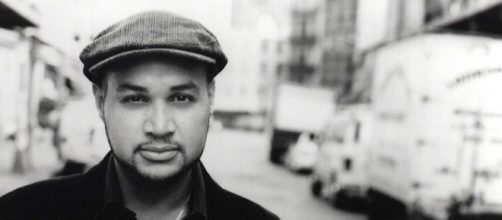“Little Rock” is a new play by acclaimed playwright and theater director Rajendra Ramoon Maharaj. The Indo-Afro-Caribbean/American activist, educator, and artist wrote “Little Rock” to tell the true and historic story of The Little Rock Nine, who were the first black students to be integrated into a white school in Arkansas during the Civil Rights movement.
Rajendra has received numerous awards and accolades for his work, which has been presented in theaters across the country. “Little Rock” is his most recent production, which aligns with the 50th Anniversary of the assassination of Martin Luther King.
It is also the 60th Anniversary of Little Rock Nine student Ernest Green's graduation at Central High School, which was attended by Dr. King. The play will have its New York premiere at the Sheen Center For Thought And Culture in NYC and begins performances May 30.
“Little Rock” deals with a specific moment in our nation’s history through the eyes of the young students and is very timely as America is still struggling with race, class, and inequality issues. Rajendra Ramoon Maharaj recently discussed his experiences working on his play, delving into history, and more via an exclusive interview.
Plays, activism, and The Little Rock Nine
Meagan Meehan (MM): What initially got you interested in being a playwright and what sorts of subjects do you most enjoy tackling through your work?
Rajendra Ramoon Maharaj (RRM): I had the honor of meeting August Wilson before he passed. He encouraged me to think about becoming a playwright. My work is rooted in social drama and documentary theatre. I enjoy telling the stories of people who have been historically bypassed.
MM: You are also an activist, so how does that influence your art?
RRM: It would be impossible to separate my activism from my art. I believe, the choices you make in your life reflect the stories you tell. Art should be in service of reminding us of our shared humanity.
MM: “Little Rock” is about a historic event, so how much research did you do?
RRM: I spent thirteen years interviewing members of The Little Rock Nine as well as a wide spectrum of Arkansans, both who were there and those who lived with the legacy every day in Little Rock.
MM: What were the challenges of writing this play and how did you get it produced at this venue?
RRM: The challenges were being able to keep the integrity of the Little Rock Nine’s journey without simplifying it. I am a Catholic American artist and activist, a person of faith, and the Sheen Center seemed to be in line with the values that Rebel Theatrical Management and I share.
Characters, education, and American Theatre
MM: How timely do you think this play is at the moment and, as an activist, are you surprised that America still struggles so much with racial and inequalities issues?
RRM: Elizabeth Eckford, one of the Little Rock Nine once said, “If we can acknowledge our painful, but shared past, then we can have reconciliation.” That sits at the heart of my play and of the struggle for many minority groups in this country with regards to the legacy of race relations.
MM: You’re also an educator, so what do you hope people learn from this play?
RRM: I want people to learn the story of nine courageous African American children whose only desire was to follow the law and go to school in peace. I want it to inspire youngsters to know that their voice matters and that they can participate in powerful platforms like the Little Rock Nine did and that they can create real, lasting social impact and change in our society.
MM: Generally speaking, what sorts of considerations did you inlay into the characters in “Little Rock”? Essentially, how did you form the characters?
RRM: The characters were based on the real people. Having the honor of sitting with The Little Rock Nine, I was able to learn about them, their families and who they were as children as well as adults.
It was important for me to show them as nine individuals rather than just a collective group. The other characters are based on the people of the town that I got to know and learn about, as well as historical figures that are in the annals of history.
MM: What kinds of themes do you want to write about in the future and why?
RRM: I am really interested in writing about the DACA Crisis, which for me, both as an artist and citizen is the new crisis in our history.
MM: Do you have any new plays on the horizon or is there anything else that you want to say?
RRM: I think that Little Rock is an opportunity for generations who may not go to the theater to come together and share an experience as a family.
It is a story that grandparents, parents and their children can all witness, be entertained and learn from. I think that that is rare in the American Theatre today. I also want people to know a sliver of a story that continues, every day, to affect every American in our society in big and small ways.
And lastly, I want children, particularly teenagers - because the Little Rock Nine were fourteen, fifteen, and sixteen years old, to know that the same courage, tenacity, and bravery that runs in the Little Rock Nine’s veins, as Americans, then and now, runs in theirs, and to use their young lives in service of making the world a better place.
* * * * * *
For more information Google: “Little Rock Play.”


